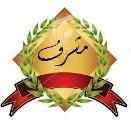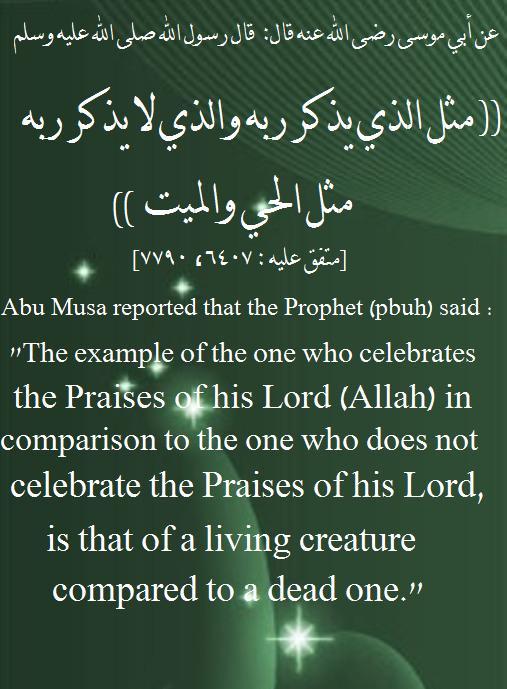Let Us Be Muslims
Edited by
Khurram Murad
The Islamic Foundation (new Engli'h vcr,jon) 19X511406 A.H.
ISBN 0 86037 1573 (PB)
ISBN 0 86037 1581 (HB)
Editor: Khurram Murad
Cover illustration: Rashid Rahman
Published by: .
The Islamic Foundation,
223 London Road,
Leicester LE2 IZE, United Kingdom
British Library Cataloguing in Publication /Jato
Mawdudi, Abul A'ia
Let us be Muslims.
1. Islam
I. Title 11. Murad, Khurram
297 BPI61.2
ISBN 0·86037·158·1
ISBN 0·86037·157·3 Pbk
i. ) H.: ...
"~! I ' :
/~ .
'N •
:.l......,J'J\ J~\ ~ ~"JI tjyJl
~u....~1 ... ~ '4+1l.d1 .I~I
w ~ .,.lI-~1 l.:!".lJI.J .,,\All ~jYJ ".:.;
I loT'! "';~)I_ 00"0 . ..,. . .." : ... WI i)b~1
!1T'T'tM ..,.slL t1tVY\T' _t10'AIA..A;u.
T' _ A~tOAy\ ~II T _ 1AVT'VOT ;,;.,-1 I _t1T~T'tv ..,,~)I..;..~I
Sole Distributor in the Middle East:
INTERNA TIONAL ISLAMIC PUBLISHING HOUSE
I. I. P. H.
Publl&hlng And Distributing Istamic Books And Tapes In 70 Languages
HEAD OFFICE: P.O.Box 55195· Riyadh 11534· Saudi Arabia
Tel: (966·1) 4650818·4647213· Fax: 4633489
BOOK SHOPS: Riyadh 1·46293471 Jaddah2·6673752t Khobar3·8945821
Contents
Introduction by Khurram Murad 13
Preface to the First Edition 43
PART I: IMAN
1. Knowledge, the First Step 47
Allah's Greatest Gift 47
Is Islam a Birthright? 48
No Mere Verbal Profession 49
No Islam Without Knowledge 49
Dangers of Ignorance 50
Acquire Knowledge 51
2. Between Islam and Kufr 53
Muslims or Kafirs? 53
Knowledge and Actions 54
Why Are Muslims Humiliated Today? 56
Desire For Knowledge 59
3. How Muslims Treat the.Qur'in 61
Irreverence and Misuse 61
Incomprehensible Contradictions 62
The Consequences 64
No Islam Without Submitting to the Qur'[m 65
4. True Meaning of Iman 69
Difference the Kalimah Creates 69
3
Is Mere Utterance Enough? 70
Meaning of the Kalimah 71
Covenant With Allah 72
Accepting the Prophet's Leadership 73
Obligations of Commitment 74
Our Behaviour 76
5. Why is the Kalimah Unique? 77
The Parable 77
Two Kinds of Trees 78
Characteristics of the Kalimah Tayyibah 79
Characteristics of the Kalimah Khabithah 80
Contrasting Results 81
Why Are Believers in the Kalimah Not
Flourishing? 82
Are Followers of the Kalimah KhabUhah
Prospering? 83
6. Why Believe in the Kalimah? 85
Success in the Hereafter 86
This-world and That-world 86
Success in That- World 87
True Purpose of the Kalimah 88
What Does the Kalimah Teach Us? 89
Actions Must Accord With Knowledge 89
PART II: ISLAM
7. The False Gods 93
What is Kufr and Islam? 93
Islam: Total Surrender 94
Three Reasons for Going Astray 95
Self-worship - Society and Culture - Obedience
to Human Beings
Condition of Muslims Today 99
8. Can We Call Ourselves Muslims? 103
A True Muslim 103
4
What is Hypocrisy? 104
Serving the Self - Adherence to Society and
Culture - Imitating Other People
The True Faith 106
A bstinence From Alcohol - Confession of Crime
- Severance of Familial Ties - Giving Up
Cultural Norms and Customs
The Way to God's Pleasure 109
Muslims of Today 110
9. Are We True Muslims? III
Two Types of Islam 112
Legal Islam - True Islam
Two Kinds of Muslims 114
Partial Muslims - True Muslims
What Kind of Muslims God Desires 115
Supreme Loyalty to Allah 116
Where Do We Stand? 117
10. Why Obey God? 119
Our WeI/-being 119
Obeying Others Besides Allah 120
The Only True Guidance 122
How to Benefit 123
No Blind Obedience 124
11. Difference Between Din and Shari'ah 125
Meaning of Din 125
Meaning of Shari'ah 128
Nature of Differences 129
Juristic Differences Between Muslims 130
Ignoring the Nature of Differences 131
Sectarianism 133
12. True Meaning of 'Ibadah 135
Meaning of 'Ibadah 136
Misunderstanding 'Ibadah 137
'Ibadah, Lifelong Service 139
5
PAR T III: SALAH
13. Meaning and Blessings of the Prayer 145
Remembering God 145
Constant Reminder 147
Sense of Duty 148
God-consciousness 149
Knowledge of God's Law 150
Collective Life 151
14. What We Say in the Prayer 153
Adhan and its Effects 153
Wuqit': Ablution 155
Niyyah: Intention 155
Tasbil;: Glorification 156
Ta'awwudh: Seeking Refuge 156
Bismillah: In His Name 156
Ijamd: Praise and Thanks 156
The Qur'an Reading 157
Surah al- 'A~r Surah al-Ma 'un Surah
af-Humazah
Ruku': Bowing Down 160
Sujud: Prostration 160
At-ta~iyyat: Salutation 160
SaNa 'ala 'n-nabiy: Blessings Upon the Prophet 161
Seeking Protection 162
Salam: Greetings 162
Du'a' qunitt 163
Character-building 164
15. Blessings of the Congregational Prayer 165
Private Worship of God 165
Assembling on One Call 167
Purposeful Assembly 167
Fellowship 168
The Sacred Purpose 168
Brotherhood 169
Uniformity in Movements 169
6
Uniformity in Prayers 170
Leadership 171
Nature and Qualities of Leadership 171
Piety and Virtue -- Majority Representation -
Sympathy and Compassion - Vacating OfficeObedience
to Leaders - Criticizing and
Correcting Mistakes - No Obedience in Sin
16. Has the Prayer Lost its Power? 175
Parable of the Clock 175
Aim of Muslim Ummah 176
Wholeness of Islamic Teachings 177
Abusing the Clock 178
Why Worship Rites are Ineffective 179
Our Deplorable Condition 180
PART IV: SAWM
17. Meaning and Blessings of the Fasting 183
Life of Worship 183
Rituals Lead to a Life of Worship 184
How Does Fasting Develop Us? 184
Exclusively Private Worship - Sure Sign of Faith
- Month-long Training - Practising Obedience
- Communal Fasting
Where Are the Results? 188
18. True Spirit of the Fasting _ 189
Spirit and Form 189
The Outward Replaces the Real 190
Wrong View of Worship 191
Fasting as a Way to Piety 192
Conditions of True Fasting 192
Abstention From Falsehood - Faith and Selfscrutiny
- Shield Against Sins - Hunger for
Goodness
7
PART V: ZAKAH
19. Fundamental Importance of Zakah 197
Meaning oj Zakah 197
Zakah, a Test 198
Early Practice 198
Categorical Imperative 200
The Sign oj Faith 201
Foundation oj the Ummah 202
Conditions Jor God's Help 203
Warning to Muslims 203
Fate oj Zakah DeJaulters 204
20. Meaning of Zakah 207
Becoming God's Friends 207
Wisdom and Understanding - Mora! Strength -
Obedience and Dutifulness Sacrificing Wealth
RequirementsJor Admittance to God's Friendship 210
Large-heartedness Magnanimity Selflessness
Purity oj Heart Giving in Adversity
Giving in AJfluence Giving Jor Allah Alone
Stressing Benevolence Amassing Wealth
Making Excuses Spending Reluctantly and
ResentJully - Considering Spending a Fine -
Niggardliness
The Real Test 214
21. Zakah, a Social Institution 217
Allah's Unique Beneficence 217
Man's Selfishness 218
What Selfishness Leads To 219
Individual and Collective Welfare 220
What is the Solution? 222
22. General Principles of Spending 223
Remembrance of God 223
Spending in the Way oj Allah 224
Essential Prerequisite to Guidance 225
Spend Only to Please Allah 226
8
Do Not Stress Your Benevolence 227
Give Only Good Things 227
Give Unobtrusively and Secretly 228
Guard Against Misuse 228
Do Not Harass Debtors 228
Take Due Care of Family 229
Give to the Deserving 229
23. Specific Injunctions of Zakah 231
Produce of the Earth 231
On Wealth and Financial Assets . 232
Jewellery
Who Are Entitled to Receive Zakah 234
Fuqara ': the poor - Masakin: the destitute and
needy - 'Amilina 'alayha: who administer
Zakah Mu 'allafatu 'l-qulub: who need to be
reconciled Fi 'r-riqab: freeing from bondage
AI-gharimin: overburdened debtors - Fi-sabW
'lIah: in the way of Allah Ibnu
's-sabi I: travellers
Other Important Principles 236
Need For Collective System 238
PART VI: HAJJ
24. Origin and Significance of Hajj 243
Life and Mission of the Prophet Ibrahim 243
Ibrahim's Times 244
Commitment to the Truth 245
Tribulations and Calamities 246
Migration 247
Raising a New Generation 247
The Greatest of Trials 248
The Universal Islamic Movement 249
Lut in Sodom - Isl}aq in Palestine -
Construction of the Ka'ba
Prayers of Ibrahim 250
9
25. Restoration of True Hajj 253
Idol Worship Among Ibrahim's Descendants 253
How Corrupted Hajj Became 254
A Yearly Carnival - Perverse Rites - Sacrilege
of Sacred Months - Self-imposed Restrictions
Restoration of Hajj 256
Fulfilment of Ibrahim's Prayer - Revival of
Ibrahim's Ways - End of Idolatry - Prohibition
of Indecent Acts - Bragging and Showing Off -
End of Ostentatious Generosity - Spattering of
Blood and Flesh Banned - Prohibition of
Perverse Rites - Changing the Months of Hajj
For.bidden - Hajj Provisions Made Obligatory -
Permission to Work During Hajj - End of Other
Customs - Fixing Boundaries Ensuring Peace
and Security
Importance of Hajj 261
26. Renewal of Self 263
The Journey 263
Virtue and Piety 264
Ilyam and its Conditions 265
Talbiyyah: the Cry of Response 265
Tawaj' Walking Round the House 266
Sa't: Hurrying Between ffafo' and Marwah 267
Wuquf (Stay) at Mina', 'Arafot and MuzdaliJah 268
Rami limar: Stoning the Pillars 268
The Impact of Hajj 270
Hajj, a Collective Worship 271
27. Renewal of Society 273
Growth in God-consciousness 273
A Season of Reawakening 274
Inspiring Spectacle of Unity 275
Greatest Movement for Peace 276
Centre of Peace and Equality 277
Our Lack of Appreciation 279
Deriving Full Benefit From Hajj 281
10
PART VII: JIHAD
28. Meaning of Jihad 285
The Ultimate Objective 285
Root of All Evil 286
The First Step 287
Origin of Corrupt Rule 288
God's Lordship Over Man 290
Temptation of Power 291
Rituals, a Training Course 291
Governments Run by God-conscious People 292
29. Central Importance of Jihad 295
Din, Shari'ah and 'Ibadah 295
Duality of Din 296
Every Din Wants Power 297
Popular Sovereignty Monarchy
Din of Islam 299
Jihad in Islam 300
Recognizing True Believers 302
Change Only Through Struggle 302
Preface to the Eighth Reprint 305
Index of Quranic Verses 309
11
British Rule
Introduction
I
Sayyid Abul A"Ia Mawdudi's Khu(ubat, of which Let Us
Be Muslims is the new and edited English translation, is no
ordinary book.
A collection of ordinary, familiar themes and plain truths,
expounded before ordinary, illiterate people in plain words
from their everyday language, it has, by the mercy of Allah,
stirred more hearts and impelled more lives to alter their
course to live in commitment to their Creator than any of his
more erudite works. Many, I am sure, would share this
impression of mine who like me have been led by his inspiring
writings to join the cause of Allah. For who can forget those
gatherings where the participants often reminisced about
things that had brought them to the Islamic movement. As
one person after another rose to tell his story and mentioned
Sayyid Mawdudi's writings, I still vividly recollect, one
answer overshadowed all others: the Khu{ubat.
To express my own indebtedness to this book, I can do no
better than to confess that I have now been reading it for
nearly four decades and every time I have found it as fresh
and inspiring as ever. Even today, I find myself speaking and
writing, without the least embarrassment, words and ideas
from the Khu(ubat, as if they were my own.
How did this book come into being? As Sayyid Mawdudi
13
LET US BE MUSLIMS
tells in his Preface, soon after migrating to Darul Islam, near
Pathankot (now in the Punjab, India) - on 16 March, 1938
- he started to gather the nearby villagers for the Friday
Prayers. To them, in every congregational address
(Khu{ubah), he tried to explain the essential message, the
basic teachings, and the spirit of Islam. Those addresses were
collected and published as Khu(ubat.
First published in 1940, since then it has been published in
various forms and languages. A popular series has been that
of six separate booklets - Haqiqat-i-Iman, Haqiqat-i-Is/am,
Haqiqat-i-Sawm-o-Salat, Haqiqat-i-Zakat, Haqiqat-i-Hajj,
Haqiqat-i-Jihad. Translations in Bengali, Hindi, Tamil,
Malayalam, Gujrati, Telgu, Sindi, Pushto and many other
subcontinental languages have also been made and published
since the early 1950s. The English translation came out thirtyfive
years later under the title The Fundamentals of Islam
(Islamic Publications, Lahore, 1975). In all these different
forms and languages, it has gone through innumerable
reprints and is being constantly reprinted from many places.
Many organizations, even individual admirers, have published
its parts for mass distribution. Yet its need remains as
fresh and its demand as high as ever.
Sayyid Mawdudi's impact on the contemporary Muslim
world is not to be measured by the sale of his books, great as
they have been. It is doubtful if any other Muslim writer of
our day has so many readers, or is so avidly read, but what is
important is that his sincere, convincing and passionate voice
has left indelible imprints on the minds and lives of his
readers. The real measure of his impact, therefore, is the
emergence of whole new generations of men and women who
have been inspired by him to lead lives of meaningful faith,
Iman, in Allah, His Messenger, and His Book, and of
dedicated struggle, Jihad, in His cause. No doubt his example
in launching and leading a major Islamic movement has
played a crucial role in this process, but it is his writings
which have made a greater impression, deep and lasting, far
and wide.
14
INTRODUCTION
Of all those writings, Sayyid Mawdudi's words inKhu{uM/.
though spoken in the narrow confines of a mosque in a farflung
part of the world, have exercised an influence very far
and beyond the time and place in which they were first
spoken. They have found a response in the hearts and minds
of their readers in true proportion to the sincerity and depth
of his message and purpose. They have led many to recognize
their inner inconsistencies and make their faith and commitment
sincere.
Here, in Let Us Be Muslims, then, are the words which
have touched many hearts and evoked many responses. What
fills them with life and power? What makes this book
extraordinary?
For, on the face of it, what Sayyid Mawdudi has said in
these addresses is very ordinary and commonplace; indeed so
ordinary that many readers might, after one quick look, want
to put the book away, without reading any further. Is this not
the same stuff, they would say, which we hear, day in day
out, from our pulpits? Obey Allah and His Messenger, pray
and fast, and everything is going to be alright.
To such readers I would say: let us together explore, at
some length, what Let Us Be Muslims means to say.
Read the book, and you will find that even ordinary things,
once placed in Sayyid Mawdudi's discourse, acquire quite an
extraordinary quality, or, at least, in our time, that quality
has become extraordinary. This is because he makes those
words breathe the same sense and purpose, as against their
merely lexical or cultural meanings, which they are given in
the Qur'an. Thus moulded afresh by the Quranic message
and burnt in the crucible of his heart, the very things which
look so lifeless and irrelevant to life, such as Iman and Islam
and the five pillars, acquire a life and revolutionary ardour
that they must have had when they were originally proclaimed
and instituted. Then, the placid world of our beliefs and
practices which we had always taken for granted begins to
tumble down. Then, we begin to find the will and courage to
'be Muslims'.
15
LET US BE MUSLIMS
Equally extraordinary is his style, the way he says these
things.
Sayyid Mawdudi was not the traditional preacher. His
voice did not roar in the air, nor did his body shake on the
pulpit. He did not employ racy anecdotes, nor did he chant
poetry. Yet his voice, in this book, has the quality which
makes it rise from the lifeless, printed pages and penetrate
our hearts.
Let us examine more closely, then, both his direct but
powerful style and simple but profound message that make
this book one of his best.
II
What gives Sayyid Mawdudi's voice the quality that makes
it penetrating and irresistible? How does it acquire the power
to quicken hearts and galvanize lives?
Obviously the primary force is the nature of his message,
its truth and simplicity, and his sincerity and passionate conviction
of its relevance to real life. But, no less important is the
manner in which he communicates his message. The secret of
his persuasive power therefore lies simply in that he has
something important and urgent to say and he says it sincerely,
clearly and passionately.
Firstly, he speaks to people in their 'language', a language
that makes his message lucid and luminous. His language and
logic, his idiom and metaphors, all are plain and simple,
rooted in the everyday life of his audience. They are not derived
from speculative philosophy, intricate logic, or mysterious
theology. For, sitting before him were ordinary folk and
almost illiterate farmers and servicemen. They knew neither
philosophy nor theology, neither history nor politics, neither
logic nor rhetoric, nor even the chaste and scholarly Urdu he,
عدل سابقا من قبل alsaidilawyer في الجمعة 30 يناير 2015 - 12:28 عدل 1 مرات















 المزاج
المزاج


